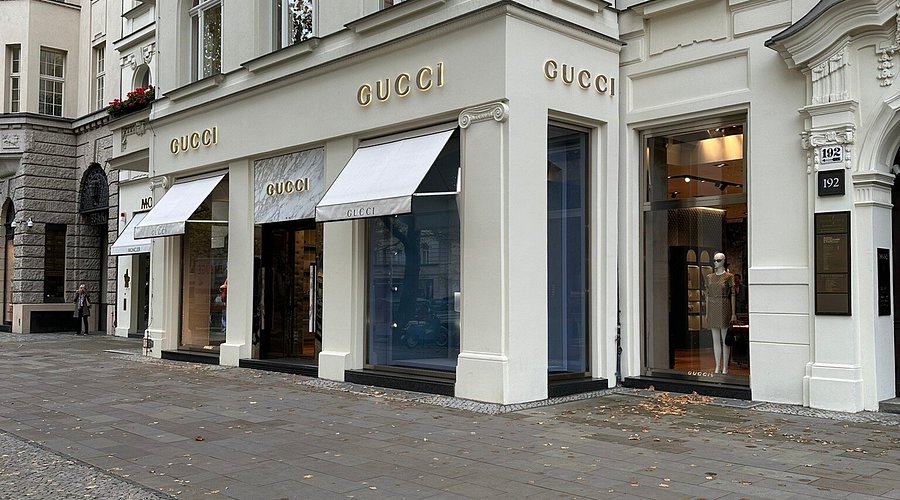Invisible Assets, Tangible Prestige: The Rise of Legacy Investments Beyond Property
By
John Carter
Last updated:
October 7, 2025
First Published:
October 7, 2025

Photo: The National News
The New Definition of Wealth
Wealth for the ultra-affluent is no longer confined to tangible property or financial holdings. A new class of investments—intangible yet highly influential—is emerging. Legacy assets such as intellectual property, private equity in niche sectors, digital platforms, and cultural rights are now being leveraged to build prestige, influence, and long-term financial security.
Intellectual Property as Legacy
Ideas, patents, and proprietary technologies have become highly prized among elite investors. Unlike physical property, these assets are scalable, transferable, and increasingly valuable in the modern knowledge economy. Owning intellectual property allows individuals to exert control over industries, secure recurring revenue streams, and establish a form of influence that extends far beyond traditional wealth markers.
Cultural and Artistic Investments
Investments in art, rare manuscripts, music catalogs, and digital content are reshaping the landscape of prestige. Collectors are acquiring not just the objects themselves but also the rights to monetize them through exhibitions, reproductions, licensing, or digital sales. These invisible assets provide both financial returns and social influence, creating a dual impact that tangible property cannot replicate.
Digital Platforms and Equity Stakes
Digital businesses, exclusive online communities, and technology-driven startups offer unique opportunities for legacy creation. Wealthy investors increasingly seek early stakes in platforms that promise cultural and economic significance. The value lies not just in profit potential but in the ability to shape trends, influence markets, and participate in the digital evolution of society.
Philanthropy as an Asset
Strategic philanthropy has also become a tool for building invisible legacy. Investments in foundations, cultural programs, and educational initiatives provide influence, recognition, and societal impact. Beyond immediate returns, philanthropic engagement positions investors as thought leaders and shapers of future social landscapes, demonstrating that influence can be as valuable as financial capital.
Collectible Rights and Digital Content
Rights to music, film, and literature offer a growing avenue for legacy wealth. By acquiring publishing rights or licensing agreements, elite investors create ongoing revenue streams while maintaining cultural relevance. These assets are intangible but carry immense prestige, reinforcing the idea that influence can be cultivated through ownership of ideas rather than physical property.
The Strategic Approach to Legacy
Successful legacy investors treat intangible assets with the same rigor as traditional portfolios. Market research, valuation metrics, and risk assessment guide decisions, ensuring both cultural impact and financial returns. The ultra-wealthy view these assets as multi-generational investments, capable of sustaining wealth and influence long after tangible holdings may fluctuate in value.
Social Capital Through Intangible Investments
Invisible assets often enhance social influence in elite networks. Owning rights to a celebrated artist’s catalog, an iconic brand, or a cutting-edge digital platform signals cultural insight, foresight, and leadership. These assets become conversation points, markers of taste, and gateways to collaboration, reinforcing the role of intangible holdings in shaping prestige and power.
Global Reach and Market Trends
The market for intangible legacy assets is increasingly global. Cross-border acquisition of patents, digital rights, and cultural holdings expands both influence and value. Emerging economies and tech hubs provide fertile ground for new investment opportunities, allowing elite investors to diversify portfolios while maintaining exclusivity and strategic advantage.
The Future of Legacy Wealth
As the concept of wealth evolves, invisible assets will play an even greater role in defining status and influence. They allow elite investors to transcend traditional measures of property and accumulate prestige that is enduring, adaptable, and culturally resonant. For the modern wealthy, the ability to manage and leverage intangible holdings represents not just financial strategy but a blueprint for shaping legacy and societal impact.
Subscribe to unlock premium content
Sed at tellus, pharetra lacus, aenean risus non nisl ultricies commodo diam aliquet arcu enim eu leo porttitor habitasse adipiscing porttitor varius ultricies facilisis viverra lacus neque.
A comprehensive guide on Agile development

10 Productivity tools that are worth checking out

Top 7 Must have management tools for productivity

A comprehensive guide on Agile development

10 Productivity tools that are worth checking out

A comprehensive guide on Agile development








.png)
